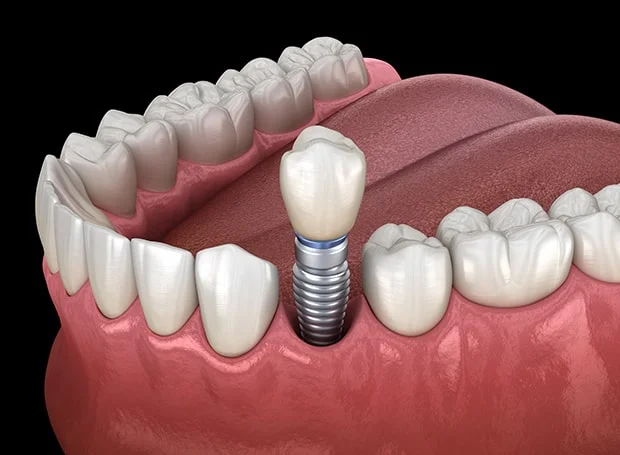When faced with the challenge of replacing missing teeth, individuals are often presented with multiple options, such as partial dentures and dental implants. Each of these solutions has its own set of benefits and considerations. You may visit North Ogden, UT dental practice for a personalized treatment plan.
Partial Dentures:
Partial dentures are prosthetic appliances designed to replace multiple missing teeth within an arch. They consist of a framework that supports artificial teeth and may be made of materials like acrylic or metal. Here’s a breakdown of the key aspects of partial dentures:
- Versatility: Partial dentures are a versatile solution for replacing missing teeth. They can effectively restore aesthetics and function, allowing individuals to chew, speak, and smile comfortably.
- Non-Invasive: The process of getting partial dentures is non-invasive, usually involving taking impressions of the mouth to create a custom-fitted appliance. This makes it a suitable option for individuals who may not be suitable candidates for surgery.
- Affordability: Partial dentures are generally more cost-effective than dental implants, making them a viable choice for individuals on a budget.
- Removability: Partial dentures can be removed for cleaning and sleeping, which can make maintenance more convenient for some individuals.
Dental Implants:
It involves the surgical placement of titanium posts into the jawbone. These posts act as artificial tooth roots onto which prosthetic teeth, such as crowns, bridges, or dentures, can be attached. Let’s explore the technical aspects of dental implants:
- Osseointegration: One of the most remarkable aspects of dental implants is osseointegration, where the titanium post fuses with the jawbone over time. This creates a stable and strong foundation for the prosthetic tooth, mimicking the natural tooth root.
- Durability: Dental implants are known for their exceptional durability and longevity.
- Stability and Functionality: Dental implants provide superior stability and functionality, allowing individuals to eat, speak, and engage in activities with confidence, just like with natural teeth.
- Preservation of Jawbone: Implants help preserve the jawbone by stimulating it, which prevents bone resorption that can occur with missing teeth. This contributes to maintaining facial structure and preventing a sunken appearance.
Making an Informed Choice:
Several factors need to be considered before making the decision:
- Health of Adjacent Teeth: If adjacent teeth are healthy, partial dentures may be a suitable option. However, if surrounding teeth are compromised, implants might be a better choice.
- Bone Health: Dental implants require a certain amount of healthy jawbone for successful placement. If bone density is low, bone grafting may be necessary.
- Budget: Partial dentures are generally more affordable upfront, while dental implants have a higher initial cost but can save money in the long run due to their longevity.
- Aesthetics and Comfort: Dental implants closely mimic natural teeth in terms of appearance and comfort, making them a preferred choice for those seeking a seamless solution.
Choosing between partial dentures and dental implants is a decision that should be based on individual circumstances, preferences, and dental health.

